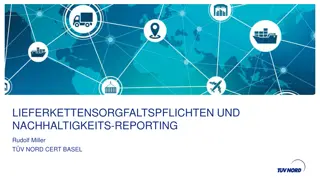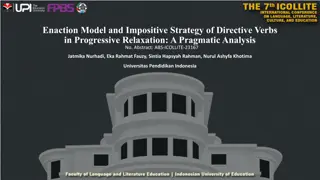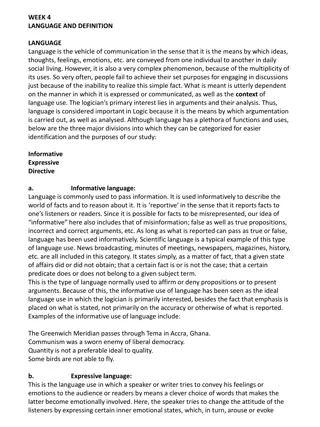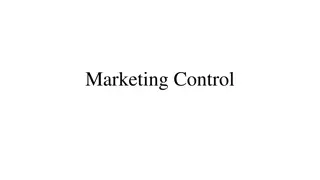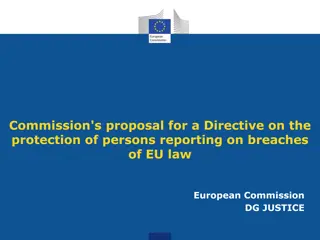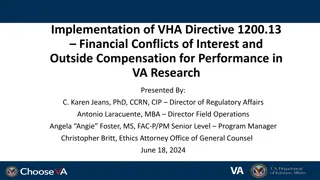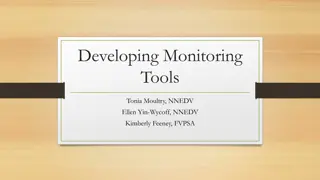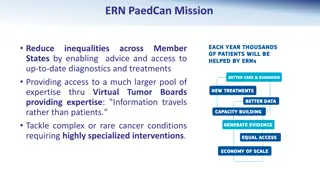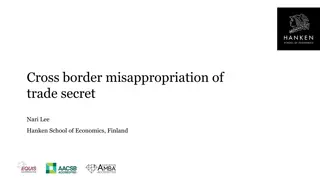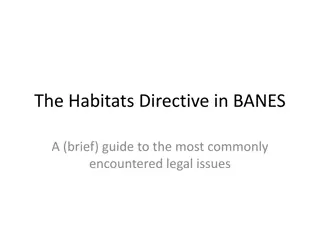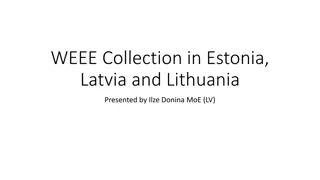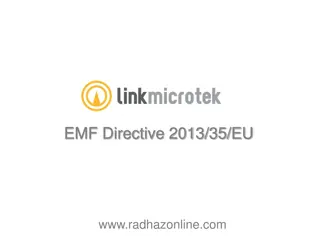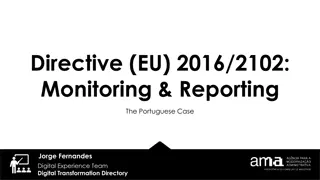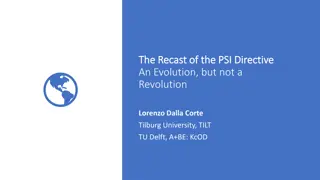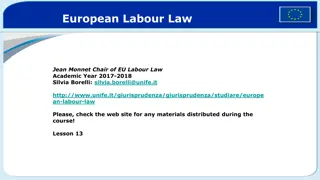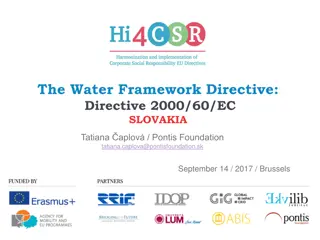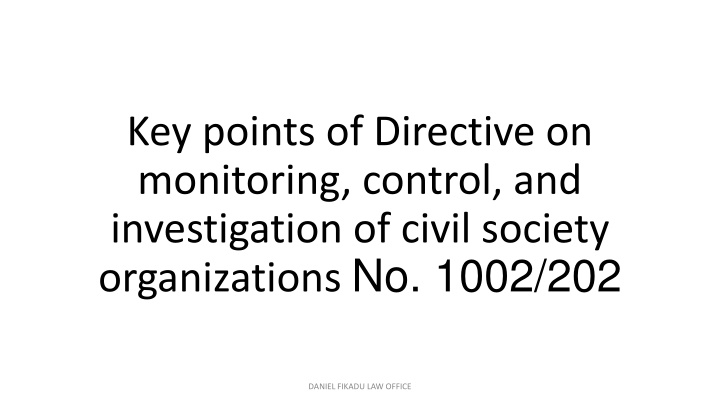
Ensuring Societal Benefit: Directive on Monitoring Civil Society Organizations
The Directive on monitoring, controlling, and investigating civil society organizations aims to ensure organizations function within the legal framework, contributing positively to society. Through monitoring, control, and investigations, it promotes transparency, accountability, and integrity within these organizations, ultimately benefiting society. By maintaining consistency, overseeing activities, and enforcing compliance, the directive strives to create a regulatory framework that fosters the positive impact of civil society organizations on society.
Download Presentation

Please find below an Image/Link to download the presentation.
The content on the website is provided AS IS for your information and personal use only. It may not be sold, licensed, or shared on other websites without obtaining consent from the author. If you encounter any issues during the download, it is possible that the publisher has removed the file from their server.
You are allowed to download the files provided on this website for personal or commercial use, subject to the condition that they are used lawfully. All files are the property of their respective owners.
The content on the website is provided AS IS for your information and personal use only. It may not be sold, licensed, or shared on other websites without obtaining consent from the author.
E N D
Presentation Transcript
Key points of Directive on monitoring, control, and investigation of civil society organizations No. 1002/202 DANIEL FIKADU LAW OFFICE
1.Ensuring that organizations carry out their work by the law and the purpose of their establishment by conducting necessary investigations and helping organizations to correct their activities 3. 2.The authority shall draw up an annual control and monitoring plan for monitoring and control according to specified conditions 6. 3.Monitoring and control activities by the authority on organizations should be consistent, and the scope of control or investigation should be clearly defined 5. 4.Transitional provision states that ongoing monitoring, surveillance, and investigation will continue in the same manner as on the date of issuance of the directive 26. 5.The Authority reserves the right to amend the directive at any time 26. DANIEL FIKADU LAW OFFICE
These provisions aim to ensure that civil society organizations operate within the legal framework, fulfill their intended purposes, and contribute positively to society while being subject to appropriate monitoring and control measures. DANIEL FIKADU LAW OFFICE
How does the Directive aim to ensure the greater benefit of society through monitoring and controlling civil society organizations? DANIEL FIKADU LAW OFFICE
1.By ensuring that organizations operate in accordance with the law and the purpose for which they were established, the Directive helps to maintain transparency, accountability, and integrity within civil society organizations 4. 2.Through conducting field or desk monitoring and control based on suggestions or available information, the authority can oversee the activities of organizations to ensure they align with legal requirements and societal needs 5. 3.By developing an annual control and monitoring plan, the authority can systematically monitor and control civil society organizations to promote compliance and effectiveness 6. 4.The principles outlined in the Directive emphasize consistency in monitoring and control activities, ensuring that organizations are held accountable for their actions and contributions to society 5. 5.By continuing ongoing monitoring, surveillance, and investigation activities, the Directive maintains a proactive approach to ensuring that civil society organizations operate in the best interest of society 1. DANIEL FIKADU LAW OFFICE
Overall, the Directive aims to create a regulatory framework that promotes the positive impact of civil society organizations on society by ensuring compliance with laws, transparency in operations, and accountability in their activities. DANIEL FIKADU LAW OFFICE
What are the implications for civil society organizations in Ethiopia regarding compliance with the Directive? The implications for civil society organizations in Ethiopia in terms of compliance with the Directive on monitoring, control, and investigation can be summarized as follows: DANIEL FIKADU LAW OFFICE
1.Increased Accountability: Civil society organizations will be required to operate transparently and be accountable for their actions and use of resources to comply with the monitoring and control measures outlined in Directive 4. 2.Regulatory Oversight: Organizations will be subject to monitoring and control activities by the authority to ensure that they operate within the legal framework and fulfill their intended purposes 5. 3.Defined Scope of Control: Civil society organizations will need to adhere to the defined scope of control and investigation outlined in the Directive, ensuring that their activities are in line with regulatory requirements 5. 4.Annual Monitoring Plan: Organizations will need to align with the annual control and monitoring plan developed by the authority, indicating a systematic approach to oversight and compliance 1. 5.Ongoing Compliance: Civil society organizations will be required to continue ongoing monitoring, surveillance, and investigation activities as per the Directive, indicating a continuous commitment to compliance and accountability.. DANIEL FIKADU LAW OFFICE
In summary, compliance with the Directive on monitoring, control, and investigation is essential for civil society organizations in Ethiopia to operate effectively, maintain transparency, and contribute positively to society while being subject to regulatory oversight and monitoring. DANIEL FIKADU LAW OFFICE


